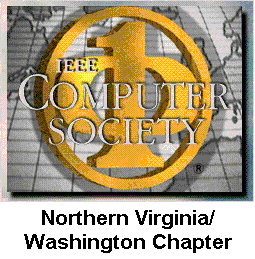
presented by
 |
presented by
|
|
6:00-7 PM: Networking, Food (Pizza) and Soft Drinks 7-8 PM: Technical Presentation 8-8:30 PM: Q&A; Any other NoVA/DC /DC /DC CS Business; Adjourn
Mobile ad hoc networks offer the promise of rapid, unstructured deployment and self-organization. Significant research activity on ad hoc networks over the past several years has resulted in advances in areas such as routing and clustering algorithms. Lately, interest in ad hoc networks has expanded from military environments to a broad array of civilian applications, including homeland security, broadband wireless access, transportation applications, etc. As a result, new challenges have emerged, in areas that include network security, algorithms for energy-efficient multicasting, and incentives for cooperation among network nodes. We will present an overview of the current state of ad hoc networks, as well as some recent approaches to address some of these research challenges. Luiz A. DaSilva joined Virginia Tech's Bradley Department of Electrical and Computer Engineering in 1998, where he is now an Associate Professor. He received his Ph.D. in Electrical Engineering at the University of Kansas and previously worked for IBM for six years. Dr. DaSilva's research interests focus on performance and resource management in wireless mobile networks and Quality of Service (QoS) issues. He is currently involved in funded research projects in the areas of QoS interoperability and policy-based network management, application of game theory to model mobile ad-hoc networks (MANETs), heterogeneous MANETs employing smart antennas, and pervasive computing, among others. Dr. DaSilva has published over forty refereed papers in journals and major conferences in the communications and networking areas. Current and recent research sponsors include NSF, the Office of Naval Research, Booz Allen Hamilton, the U.S. Customs Services, Intel, and Microsoft Research, among others. He is a member of the Center for Wireless Communications (CWT), associated faculty at the Mobile and Portable Radio Research Group (MPRG), and a member of the Governing Board of the NSF-funded Integrated Research and Education in Advanced Networking (IREAN) program at Virginia Tech. Dr. DaSilva is a senior member of IEEE and a member of ASEE. He frequently teaches distance and distributed learning courses on network architecture and protocols and on mobile and wireless networking. |